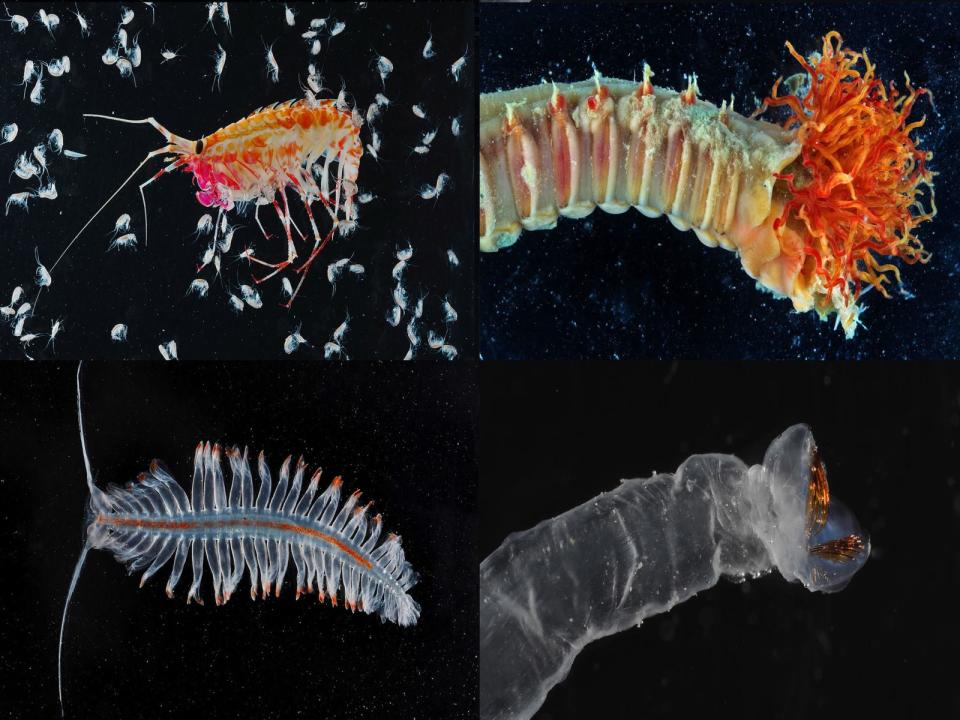'Mystery' ecosystem under huge Antarctic iceberg set for exploration

Scientists are travelling to Antarctica to investigate a mysterious marine ecosystem hidden under an iceberg four times the size of London.
The team, led by British Antarctic Survey (BAS), leave the Falklands on 21 February to collect samples from a newly exposed seabed beneath an iceberg dubbed A68, which calved off from the Larsen C Ice Shelf in July.
It is considered an urgent mission, with the 5,818 sq km ecosystem susceptible to change as it becomes exposed to sunlight for the first time in thousands of years.
It is thought to be up to 120,000 years old.
Research ship RSS James Clark Ross will spend three weeks monitoring the ecosystem, collecting seafloor animals, microbes, plankton and water samples.

Dr Katrin Linse, a marine biologist from BAS, is leading the expedition.
"The calving of A68 provides us with a unique opportunity to study marine life as it responds to dramatic environmental change," she said.
"It's important we get there quickly before the undersea environment changes as sunlight enters the water and new species begin to colonise.
"We've put together a team with a wide range of scientific skills so that we can collect as much information as possible in a short time. It's very exciting."
Video cameras and a special underwater sledge will provide a picture of what life is like under the ice shelf, and will also allow for the tracking of any changes to the ecosystem over time, including marine mammals and birds that might have moved into the area.
As the team prepares for its mission, glaciologists and other specialists are continuing to monitor the ice shelf's movements and predict its future stability.
BAS science director Professor David Vaughan said the calving of A68 offered an "unprecedented opportunity".
"Now is the time to address fundamental questions about the sustainability of polar continental shelves under climate change. We need to be bold on this one.
"Larsen C is a long way south and there's lots of sea ice in the area, but this is important science, so we will try our best to get the team where they need to be."
The mission is the result of a 2016 agreement to designate special areas for scientific any study locations left newly exposed by the collapse or retreat of ice shelves.
Larsen C was given a 10-year designation by the Commission for the Conservation of Antarctic Marine Living Resources, keeping it free of any commercial fishing to allow uninterrupted research to take place.

 Yahoo News
Yahoo News 
